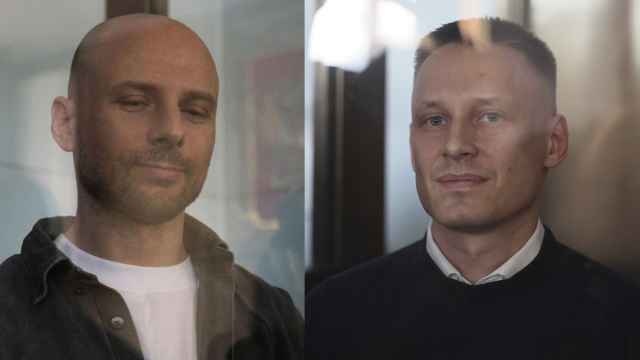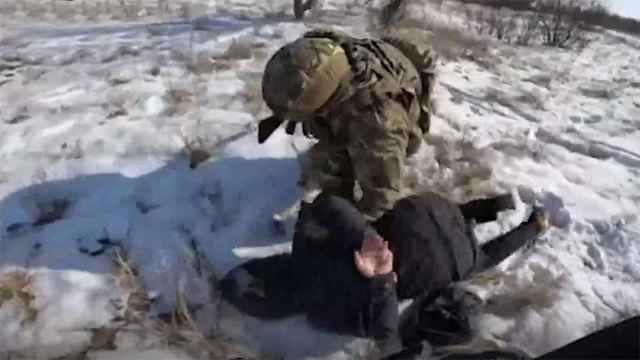STOCKHOLM — A newly discovered Swedish document shows how the Soviet secret police intervened in the early 1990s to stop an investigation into World War II hero Raoul Wallenberg's fate, two U.S.-based researchers said Monday.
The Swedish diplomat, who would have turned 100 this year, is credited with rescuing tens of thousands of Hungarian Jews from the Nazis. He disappeared after being arrested in Hungary by the Soviet Red Army in 1945.
Russia says he was executed on July 17, 1947, but unverified witness accounts and newly uncovered evidence suggest that he may have lived beyond that date.
Wallenberg researchers were hoping that key pieces of the puzzle would emerge when an international commission was granted access to Soviet prison records as Communist rule was heading toward its end.
But a document from the Swedish Foreign Ministry supports claims that the KGB acted to obstruct that effort, said German researcher Susanne Berger who consulted a Swedish-Russian working group that conducted a 10-year investigation until 2001.
The Sept. 16, 1991 memorandum from the Swedish Embassy in Moscow cites the former head of the Soviet "Special Archive," Anatoly Prokopenko, as telling Swedish diplomats that the KGB instructed him to stop a search for documents by researchers working for the first International Wallenberg Commission.
Prokopenko also said the KGB wanted copies of all documents that the researchers had already viewed, according to the memo, which was made available to The Associated Press by Berger. Its authenticity was confirmed by the Foreign Ministry.
Berger said the document was significant because it illustrates how since the end of the Cold War researchers have struggled to get access to crucial documents from Soviet archives.
"The action in 1991 has, unfortunately, proved symptomatic, rather than an exception to the rule," Berger said. "Twenty years later, we are still facing this fundamental problem."
Prokopenko made similar claims of KGB interference in a Russian news article in 1997. After that the Swedish government declassified parts of the memo, but it didn't become publicly known until Berger obtained it this month.
Wallenberg was arrested the day after the Red Army seized Budapest, along with his Hungarian driver Vilmos Langfelder. The Russians never explained why they detained him.
Russian scholar Vadim Birstein, one of the researchers working for the first Wallenberg commission, said they had just found some previously unknown documents when the archive was closed to them in the spring of 1991.
"We were stopped exactly after I found three documents: two with the name Wallenberg on it and one with the name Langfelder — and [the authorities] said they weren't hiding anything!"
Birstein and Berger, who are based in the United States, said that although they and other researchers have since been granted access to study some Wallenberg files, important archive material has still not been made available.
"At the key junctures, the doors have remained closed," Berger said, noting that even the first piece of material that was handed over by the Russians in 1991, and was meant to illustrate a new openness on their side, turned out to be censored.
It concerned interrogation material suggesting that Wallenberg had been questioned six days after his alleged death.
Russia has never been able to produce a reliable death certificate or hand over Wallenberg's remains — circumstances which have prompted researchers to try to continue to try to tap Russian authorities for more information.
As Sweden's envoy in Budapest from July 1944, Wallenberg saved 20,000 Jews by giving them Swedish travel documents or moving them to safe houses, and he dissuaded German officers from massacring the 70,000 inhabitants of the city's ghetto.
Sweden marks the 100th anniversary of his birth this year with a series of events, including a traveling exhibition, seminars, conferences, concerts and a commemorative stamp.
A Message from The Moscow Times:
Dear readers,
We are facing unprecedented challenges. Russia's Prosecutor General's Office has designated The Moscow Times as an "undesirable" organization, criminalizing our work and putting our staff at risk of prosecution. This follows our earlier unjust labeling as a "foreign agent."
These actions are direct attempts to silence independent journalism in Russia. The authorities claim our work "discredits the decisions of the Russian leadership." We see things differently: we strive to provide accurate, unbiased reporting on Russia.
We, the journalists of The Moscow Times, refuse to be silenced. But to continue our work, we need your help.
Your support, no matter how small, makes a world of difference. If you can, please support us monthly starting from just $2. It's quick to set up, and every contribution makes a significant impact.
By supporting The Moscow Times, you're defending open, independent journalism in the face of repression. Thank you for standing with us.
Remind me later.





